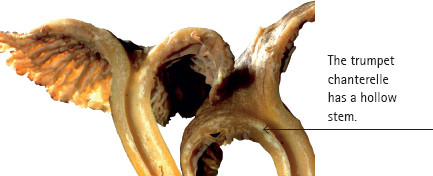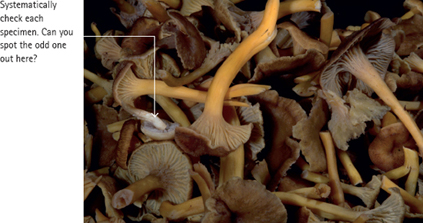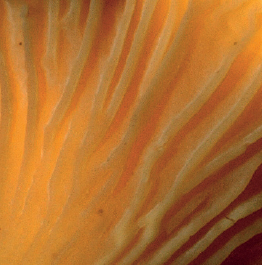

The chanterelle is a very popular mushroom, not surprisingly. It is delicious and very common. Since it is imported throughout the year, the supermarket is a good place to familiarize yourself with the chanterelle. There is, however, nothing like the chanterelle you find yourself. They are found in groups or scattered, never in dense clusters. Refrain from picking tiny chanterelles, that is, little yellow buttons that hardly show the identification features. At some point, you’ll come across one lonely chanterelle standing in the middle of nowhere for no particular reason at all. Leave it.
The classic color of the chanterelle is egg-yolk yellow, which, however, can vary from light yellow or yellow-orange to yellow-ochre. The chanterelle does not change color when bruised. The entire outside of the mushroom is the same color.
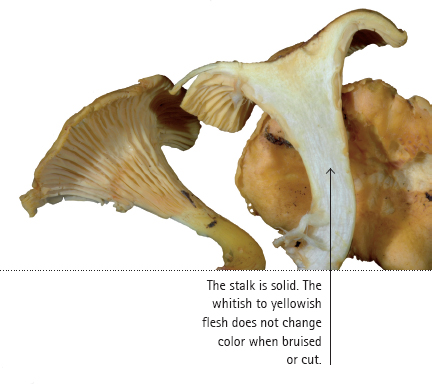
The more mature the chanterelle, the more funnel-shaped it becomes.
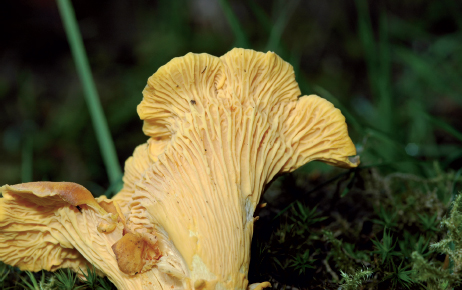
Whether young or mature, the chanterelle’s ridges must be clearly visible.
Some mature forms can look highly irregular, but, on closer inspection, the funnel shape will still be there.
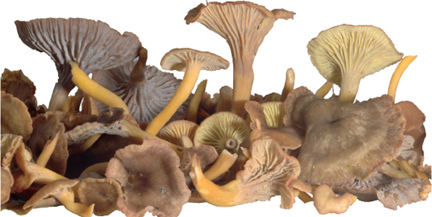
In comparison to the attractively colored chanterelle, the trumpet chanterelle (also known as the autumn chanterelle, or winter chanterelle) looks modest. On closer inspection, however, it is just as beautiful as the chanterelle. The trumpet chanterelle pops up overnight so quickly that you could watch it grow. It is an endearing mushroom, not least because it tends to appear in great numbers and is frost-resistant.
A cluster of trumpet chanterelles.
The cap is brownish and has a depression (small specimen) or a hole connecting to the hollow stem in the center.
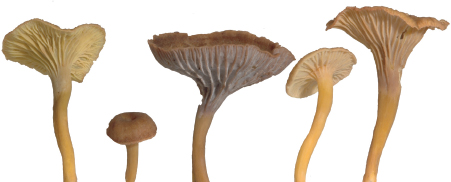
Color and shape vary according to age and weather conditions. Each individual trumpet chanterelle has more than one color.
The ridges and the stalk range from brown-yellow to gray-yellow to gray-lilac.
The jagged edges here are due to frost.
